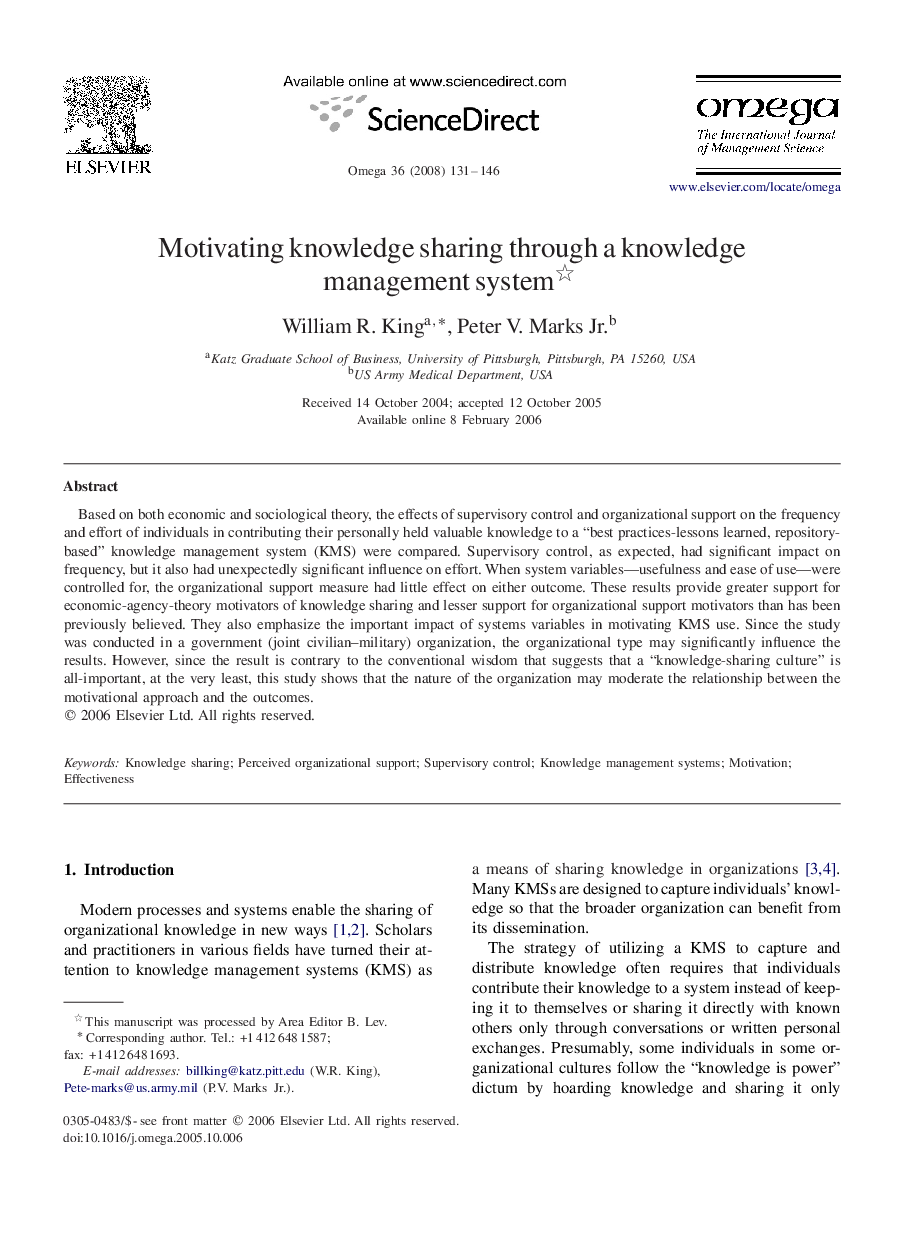| Article ID | Journal | Published Year | Pages | File Type |
|---|---|---|---|---|
| 1033408 | Omega | 2008 | 16 Pages |
Based on both economic and sociological theory, the effects of supervisory control and organizational support on the frequency and effort of individuals in contributing their personally held valuable knowledge to a “best practices-lessons learned, repository-based” knowledge management system (KMS) were compared. Supervisory control, as expected, had significant impact on frequency, but it also had unexpectedly significant influence on effort. When system variables—usefulness and ease of use—were controlled for, the organizational support measure had little effect on either outcome. These results provide greater support for economic-agency-theory motivators of knowledge sharing and lesser support for organizational support motivators than has been previously believed. They also emphasize the important impact of systems variables in motivating KMS use. Since the study was conducted in a government (joint civilian–military) organization, the organizational type may significantly influence the results. However, since the result is contrary to the conventional wisdom that suggests that a “knowledge-sharing culture” is all-important, at the very least, this study shows that the nature of the organization may moderate the relationship between the motivational approach and the outcomes.
